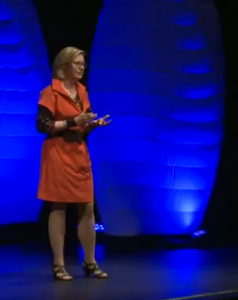Specs That See Into Your Heart
-
-
slice.mit.edu
Filed Under
Recommended

Social x-ray specs are the newest tool aimed at helping people decipher emotional clues, part of ongoing research by MIT Professor Rosalind Picard SM ’86, ScD ’91, director of the Media Lab’s Affective Computing research group. When linked to software that analyzes some 10,000 facial expressions, these glasses reveal a range of emotions that may be too subtle for most people to detect and nearly impossible for people on the autism spectrum.
Picard got interested in tracking emotional response when she began working with people on the autism spectrum who did not have the ability to speak. So she began studying the sympathetic nervous system, which revs up the body, and the parasympathetic, which signals relaxation. She heard heartbreaking stories about individuals who were forced to leave school or familiar environments because of meltdowns. She found the meltdowns were preceded by a period of agitation—but the individuals could not express it.
“What if we could enable them to signal out their increasing stress and frustration?” Her research group came up with a simple wrist skin sensor that individuals could wear to display their emotional state. This device is now available through her company Affectiva.
“When something really matters, it elicits emotion,” Picard said in a recent TED talk. “And how do we help people communicate emotion to make life better—whether it’s at home, or at work for your customers, or for your kids at school. Our challenge at the Media Lab and Affectiva is to come up with better ways measure and help people communicate emotion.”
Picard, author of award-winning book Affective Computing, heads MIT's new Autism & Communication Technology Initiative.







